It’s now or never for #NeverTrump. A contested Republican convention where the front-runner could lose the nomination is no longer in the cards. He’s now the presumptive nominee, weeks sooner than most expected.
The focus has now shifted to a conservative or independent third-party candidacy. Supporters claim the campaign infrastructure and funding is in place. There’s just one problem: As deadlines loom, no candidate has bitten.
Quite the opposite, in fact. Every time a name is floated in the press, the prospective candidate quickly says he is not interested. Mitt Romney, who has at times sounded like a candidate, has so far been willing to only help recruit one. Time is running out.
Republican strategist Rick Wilson has been one of the most indefatigable anti-Trump conservatives. He was working against the billionaire while most party donors sat on the sidelines. He regularly tangles with Trump Twitter trolls online. He remains characteristically defiant.
“Obviously, we don’t have forever to put this thing into position, but we still haven’t reached the structural deadlines yet,” Wilson told the Washington Examiner. “None of us have ever been unrealistic about how difficult of an assignment this is to put together a candidate on such short notice, especially as the D.C. establishment is rolling over and becoming the Vichy Republicans we all knew they would.”
John Noonan, who was Jeb Bush’s national security adviser, was active in the movement behind drafting retired Gen. Jim Mattis as a candidate.
“There’s still an appetite to have an actual conservative on the ticket, and I think a conservative will step up and do what needs to be done,” Noonan said. “People say that if you run a third party, you’re going to hand the election to [Hillary] Clinton, but I’m operating under the assumption that Trump will lose anyway.”
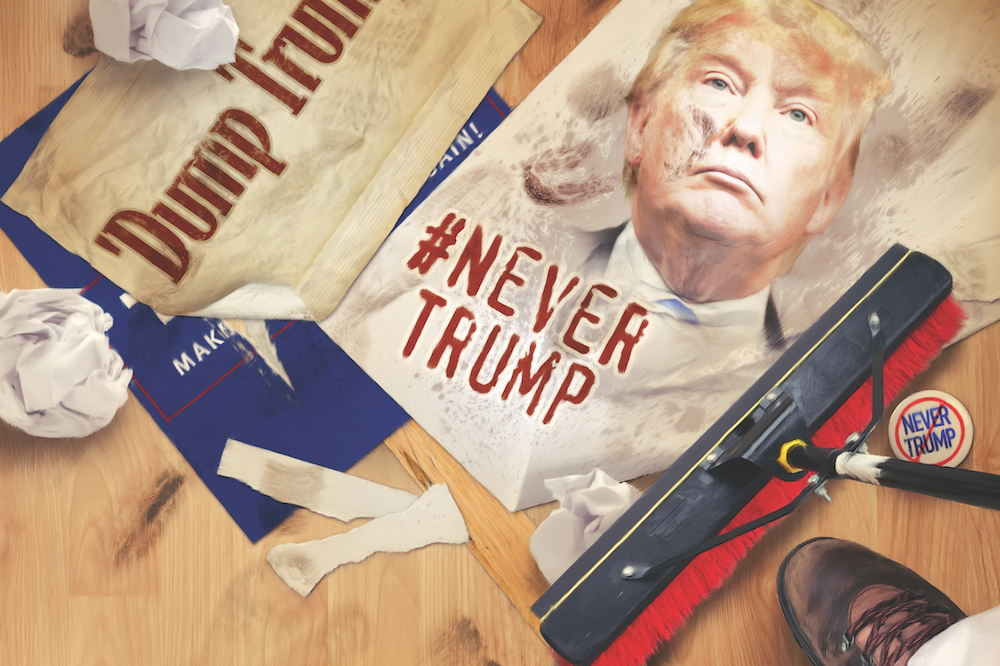
The early anti-Trump efforts had to forge on without big donor support. Republican strategist Liz Mair’s Make America Awesome super PAC had raised a paltry $10,000 between its inception and February. Few more established groups took on Trump, aside from the fiscally conservative Club for Growth. (Illustration by Bill Lesniewski)
That was the operative assumption of many Republican donors and leaders who were concerned about Trump, but were unwilling to support efforts to derail him early. “Everyone seems to be banking on him fizzling on his own,” a senior Washington GOP operative told the Examiner in December.
Except Trump never fizzled. Another strategist insisted at the time that Trump would never get to 51 percent in a string of states. But he exceeded that threshold in a series of Northeastern and Mid-Atlantic states before knocking his opponents out of the race by winning 53.3 percent of the vote in Indiana.
The early anti-Trump efforts had to forge on without big donor support. Republican strategist Liz Mair’s Make America Awesome super PAC had raised a paltry $10,000 between its inception and February. Few more established groups took on Trump, aside from the fiscally conservative Club for Growth.
In the early states, Ted Cruz was often the candidate best positioned to beat Trump. Many anti-Trump Republicans were hoping for a breakout by Marco Rubio instead, partly because they personally preferred the Florida senator and partly because they feared the establishment would never truly mobilize against Trump if Cruz was seen as the likely beneficiary (some party leaders even preferred Trump to the Texas senator).
Indeed, Cruz wasn’t able to fully consolidate the establishment’s support even when he was effectively the last man standing against Trump. Rubio never had his big breakout and lost his home state primary to Trump. John Kasich stayed in throughout the entire competitive phase of the race.
Everything that could go wrong for #NeverTrump during the primaries did. Murphy’s Law is playing out again with the third-party efforts, starting with a lack of establishment support.
Every major Republican congressional leader except for House Speaker Paul Ryan has now endorsed Trump for president, and even Ryan has signaled his support is likely to come eventually. Republican National Committee Chairman Reince Priebus has called the third-party project a “suicide mission.”
“It’s gotten to the point where it’s just get on board or get out of the way,” Republican strategist Ford O’Connell told the Examiner. “Many of the people who missed the point on stopping Trump have also missed the point on the purpose of political parties. Political parties are not meant to be ideological vessels, but competing enterprises whose job is to win elections.”
“There is no path forward,” former Cruz spokesman Rick Tyler told the Examiner. “It’s a terrific strategy if you want to see a Democrat elected to the White House. It is extraordinarily difficult to run a third-party candidate successfully, and anyone trying to organize a third-party campaign right now just opens themselves up to the suspicion that they’re simply interested in cashing in on an ego.”
Many of those promoting an anti-Trump third party argue that they are not merely trying to play the role of spoiler. They believe that they can deny either Trump or Clinton an Electoral College majority and throw the election to the House.
“I think someone will step up and be the candidate and do what has to be done,” Noonan said. “The prospects of a Trump or Hillary presidency are chilling for the country, and I think serious people recognize that. Who it will be? I don’t know.”
That’s a tall order. George Wallace wasn’t able to do it in 1968, despite carrying five states. Neither could Strom Thurmond in 1948. Ross Perot and John Anderson failed to win any electoral votes. Even Theodore Roosevelt, a popular former Republican president, was only able to tip the election to the Democrats in 1912.
Ralph Nader arguably flipped the close 2000 election to the Republicans, despite winning less than 3 percent nationally and less than 2 percent in Florida.
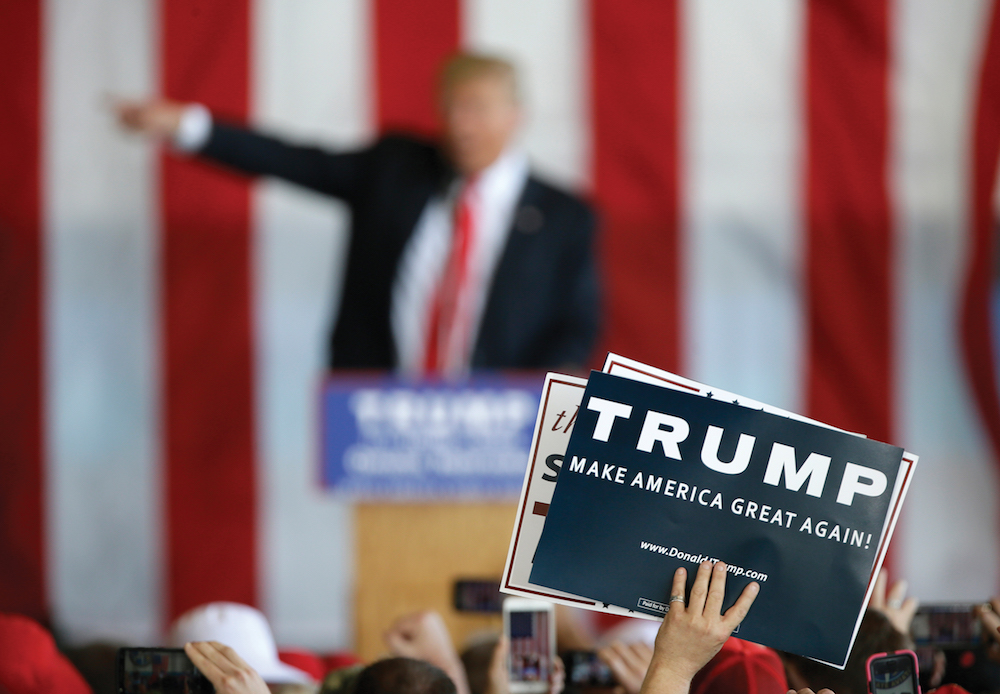
Many of those promoting an anti-Trump third party argue that they are not merely trying to play the role of spoiler. They believe that they can deny either Trump or Clinton an Electoral College majority and throw the election to the House. (AP Photo)
The anti-Trump third party would have to either carry states that Clinton would win or move some states from her column to Trump’s. The likelihood would be that such a candidacy would only swing states from Trump to Clinton.
“Getting to a tie in the Electoral College in order to get House Republicans to elect the president would be like dropping a golf ball from space into the 18th hole at Augusta,” Tyler said.
Third-party boosters argue the monumental unpopularity of both Trump and Clinton gives them a better chance. They point to a May poll showing that 58 percent of Americans aren’t happy with the candidates, 55 percent would support an independent candidate entering the race and that candidate would start with 21 percent of the vote.
Hypothetical third-party candidates often perform better in polls than actual candidates — 58 percent told Gallup they supported the creation of a third party in 2010, long before Trump’s candidacy — and even real third-party candidates frequently underperform their poll numbers at the ballot box.
Perot was actually leading nationally in June 1992, but won just 19 percent in November. Republican voters are starting to rally around Trump, and the major-party race is becoming close.
Anti-Trump Republicans disregard the odds because they believe Trump isn’t a conservative, doesn’t have the character to be fit for the presidency and would permanently damage the GOP brand, especially among growing demographics like Latino voters.
“We aren’t quitters,” Wilson said. “Nobody here is doing this to get rich or have fun. We’re doing this because if we don’t, the Republican Party becomes permanently smeared with this guy’s vile mannerisms and attitude. So we’re going to keep swinging this thing because the stakes are too high to do anything less.”
For many of them, it is also personal. Prominent anti-Trump conservatives have been targeted by Trump supporters for harassment, threats and racial or ethnic slurs, especially on social media. Trump and those around him have done little to discourage this behavior.
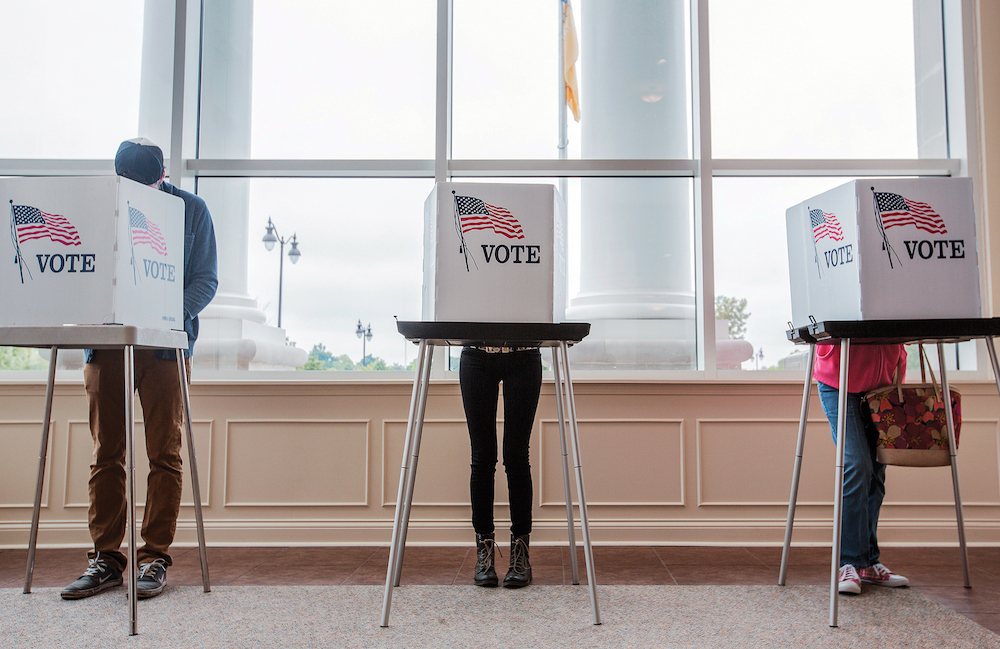
Hypothetical third-party candidates often perform better in polls than actual candidates, and even real third-party candidates frequently underperform their poll numbers at the ballot box. (AP Photo)
Their sincerity won’t necessarily translate into results. “The biggest part of their problem remains the same,” O’Connell said. “It was never the why, it was the who and the how.”
“It is very difficult to organize and rally around a negative,” Tyler said. “People don’t just want to be against something, they want to know what you’re for … I think structurally, [#NeverTrump] was always doomed to fail.”
Here are few of the candidates #NeverTrump hoped would try.
Former Massachusetts Gov. Mitt Romney
Romney’s name has been floated more than once this cycle as both the doyen of the “white knight” candidates when a contested Republican convention still seemed possible and someone who could challenge both Trump and Clinton as a third-party, conservative alternative.
The former Massachusetts governor has both experience and name recognition. He was vetted in 2012, when he won the GOP nomination, and many claim the predictions he made about President Obama’s second term became realities.
But it’s difficult to picture the two-time presidential candidate exciting some of the conservatives who boycotted his candidacy four years ago because he wasn’t conservative enough then. He is a party establishment figure. He helped mainstream Trump by publicly accepting his endorsement four years ago. And it’s equally unimaginable to see Romney escaping the “loser brand.”
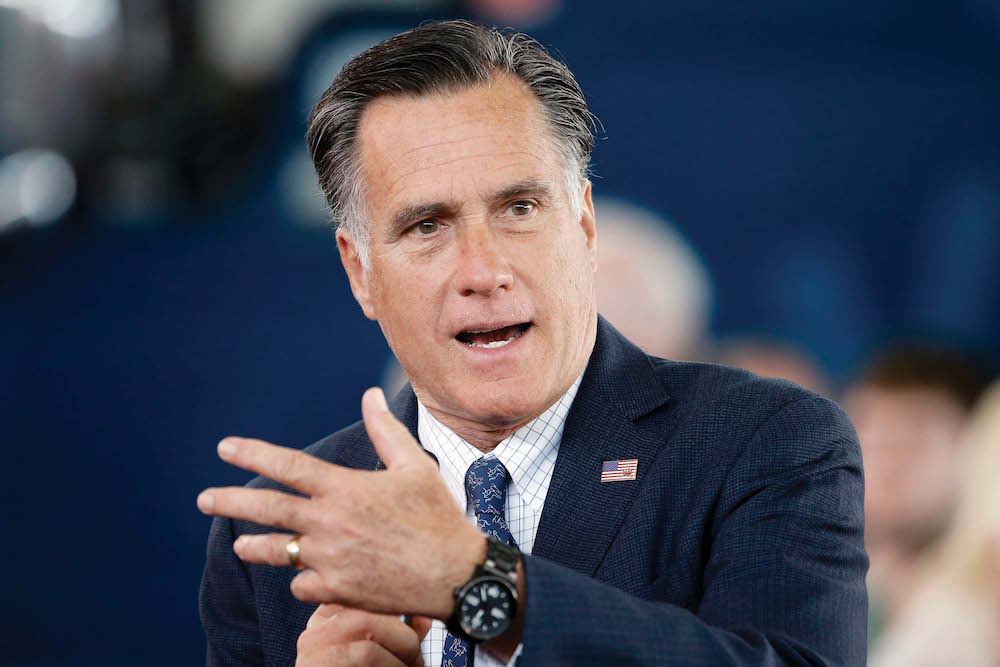
Running Romney against Trump and Clinton in several of the states he won in 2012 could be the best fit for the strategy third-party supporters are committed to pursuing. (AP Photo)
“A lot of people in the party believe that President Obama was the easiest person in the world to beat and, while I think their judgement is misguided, they would say that if Mitt lost to Obama, he can’t beat anyone,” a source close to the former Massachusetts governor told the Examiner.
Running Romney against Trump and Clinton in several of the states he won in 2012 could be the best fit for the strategy third-party supporters are committed to pursuing. He has the money and the name recognition to jump in this late and start a national campaign organization on the fly.
Unlike any other third-party contender put forth by conservatives, Romney would likely have a shot at making it onto the debate stage because of his credibility as a recent major party nominee, possibility of hitting the 15 percent polling threshold frequently demanded by debate organizers and the network of deep-pocketed supporters he already possesses.
A former adviser to Romney also suggested that Republicans who prioritize party over principle, but remain unenthusiastic about Trump being their nominee, might consider voting for a statesman like the former Massachusetts governor.
Nevertheless, Romney’s behind-the-scenes involvement in the effort to recruit a third-party candidate reinforces his repeated claim that he’s not interested in challenging Trump himself.
“There are no circumstances, I can foresee, where that could possibly happen,” he told NBC’s Matt Lauer in March. “I’m not running for president, and I won’t run for president.”
Gen. James Mattis
Beginning this year, retired Marine Corps Gen. James Mattis was being urged by a select group of conservatives to launch an independent bid.
“I see a lot of strengths with Mattis, and that’s why people were pushing him,” Noonan told the Examiner. “I don’t think anybody was blind to the fact that he doesn’t have the name recognition like Gen. Eisenhower did, but there is no better brand in the country right now than the U.S. Marine Corps.”
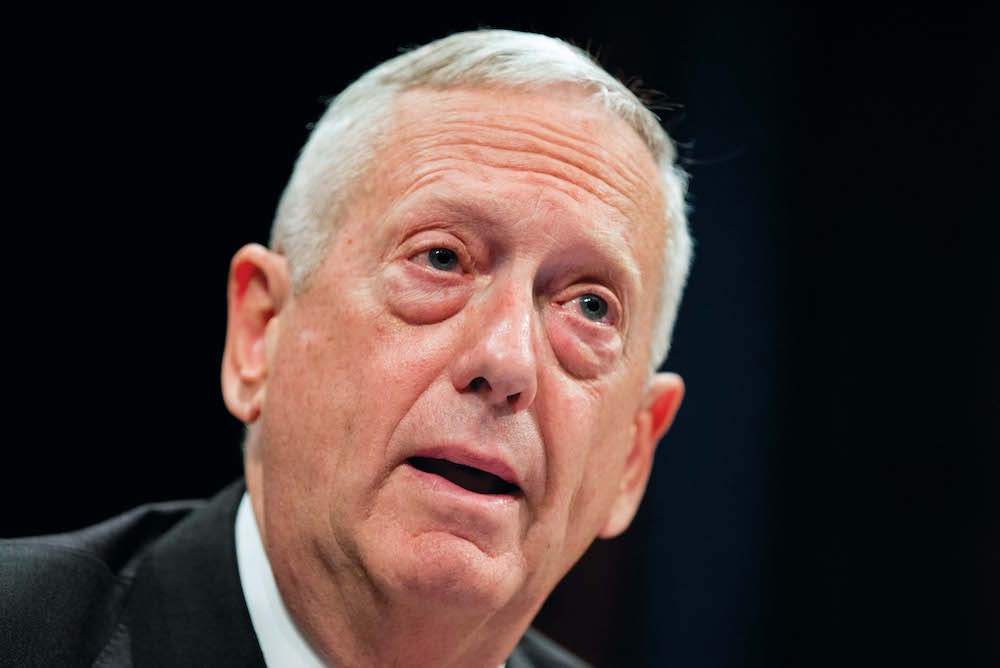
Retired Marine Corps Gen. James Mattis was being urged by a select group of conservatives to launch an independent bid. (AP Photo)
The one characteristic fans of the four-star general claim he could’ve succeeded on is the same characteristic that led Trump to become the GOP nominee.
“He’s an outsider, and that’s a popular thing to be right now,” Noonan said.
Mattis recently closed the door to a third-party bid “after much consideration.”
“The thoughtfulness and patriotism — and for that matter, the modesty — Jim showed as he reflected on this decision make me more convinced than ever that he would have made a truly admirable president, and also a good candidate,” Weekly Standard editor Bill Kristol wrote last month in an email to those closely involved in the movement to draft him. “But it’s not to be. So we won’t have a President Mattis.”
Florida Sen. Marco Rubio
Rubio ended his White House bid in March, after losing his home state and winning just three nominating contests in Puerto Rico, Minnesota and Washington, D.C. But the Florida senator’s name is still being floated as a potential third-party candidate by those who were drawn to his charisma and optimistic message in the primary.
If Rubio did mount an independent run to give conservatives another option in November, those close to him claim he could turn a handful of purple states red.
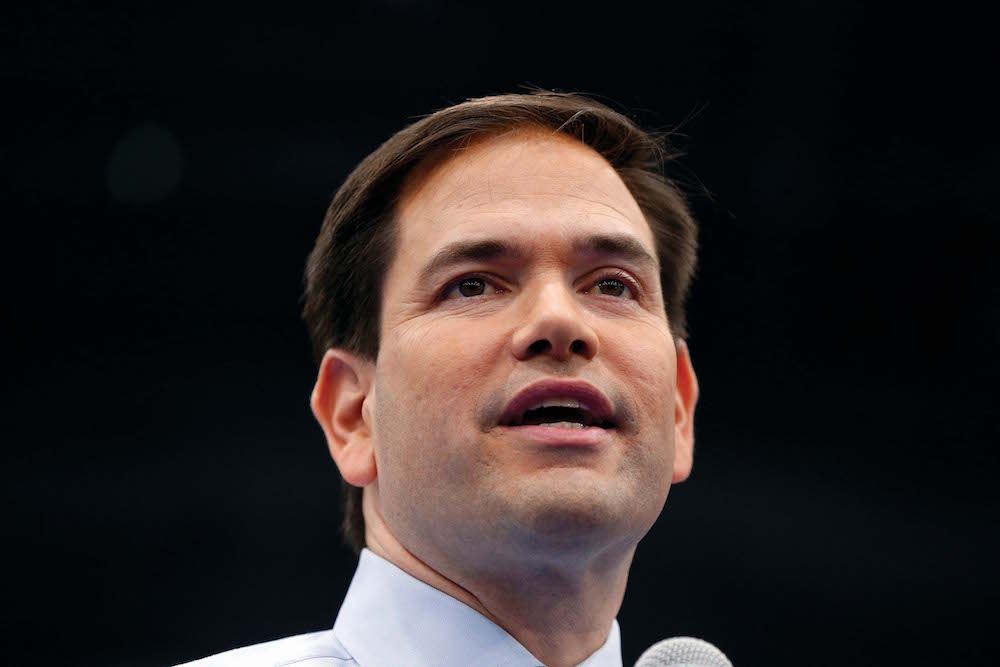
Rubio’s name is still being floated as a potential third-party candidate by those who were drawn to his charisma and optimistic message in the primary. (AP Photo)
“States like Florida, Virginia, Nevada and Colorado, where he finished second in the primary and is well-liked,” said a source who worked on Rubio’s presidential campaign.
“His optimistic message does well. He’s strong on foreign policy at a time when security is a big concern. And he always did well among females and minorities [in primary contests],” the source said.
But deciding to run against Trump and Clinton in the general election and failing to keep either from making it to the Oval Office would almost certainly damage Rubio’s chances of taking another shot at the presidency in 2020 or 2024.
“Not a chance,” the same source said when asked if Rubio would ever consider re-entering the race as a third-party candidate before November.
If Rubio did choose to mount an independent bid, he would be reversing course on his previous promise to support whichever candidate secured the GOP nomination.
“I have a pledge to support the nominee … and I intend to keep it,” the Florida senator recently told CNN.
Businessman Mark Cuban
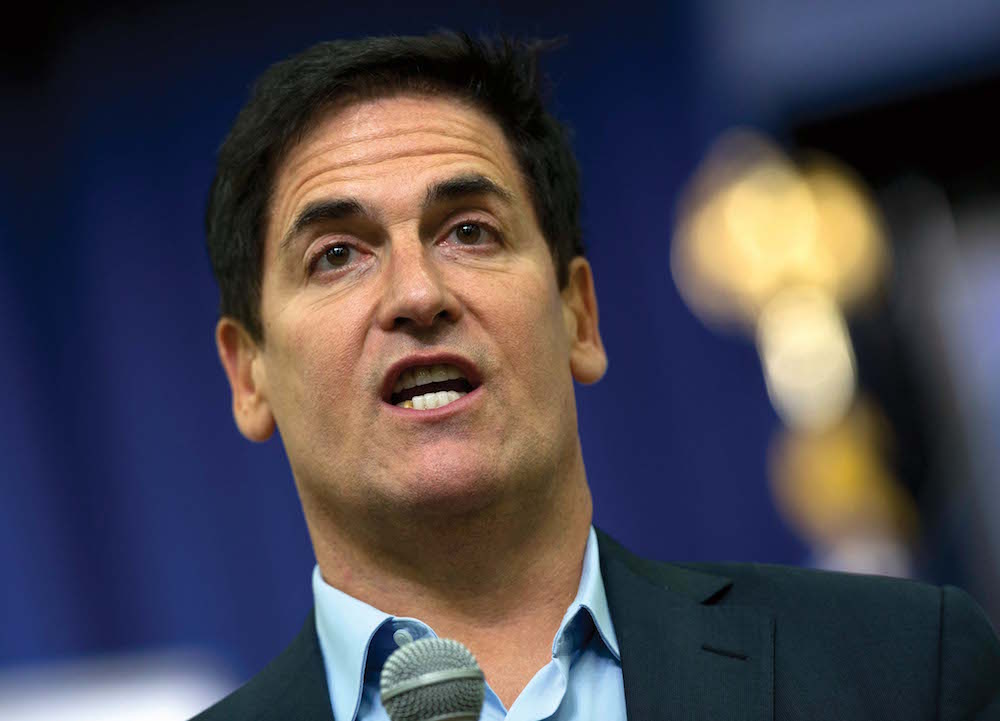
“It would have been fun to run against Donald,” Cuban told CNN in May, but “as a third party, it’s too late.”
The Dallas Mavericks owner is brash enough to compete with Trump for headlines and rich enough to self-fund his campaign on the fly. He thinks a Trump win will produce “huge, huge” stock market losses.
But Cuban isn’t running. “It would have been fun to run against Donald,” he told CNN in May, but “as a third party, it’s too late.”
Nebraska Sen. Ben Sasse
Sasse has been discussed as a third-party option among #NeverTrump Republicans for months since he became the first member of Congress to publicly pledge not to support Trump as his own party’s nominee.
“When people meet him, he’s a really down-to-earth dude,” Eric Maranga, chairman of the Draft Sasse committee, told the Examiner.
The Nebraska senator penned an open letter to Americans this month littered with the hashtags “#WeCanDoBetter” and “#GiveUsMoreChoices,” and has continued to promote the idea of a third-party candidate in subsequent media appearances.
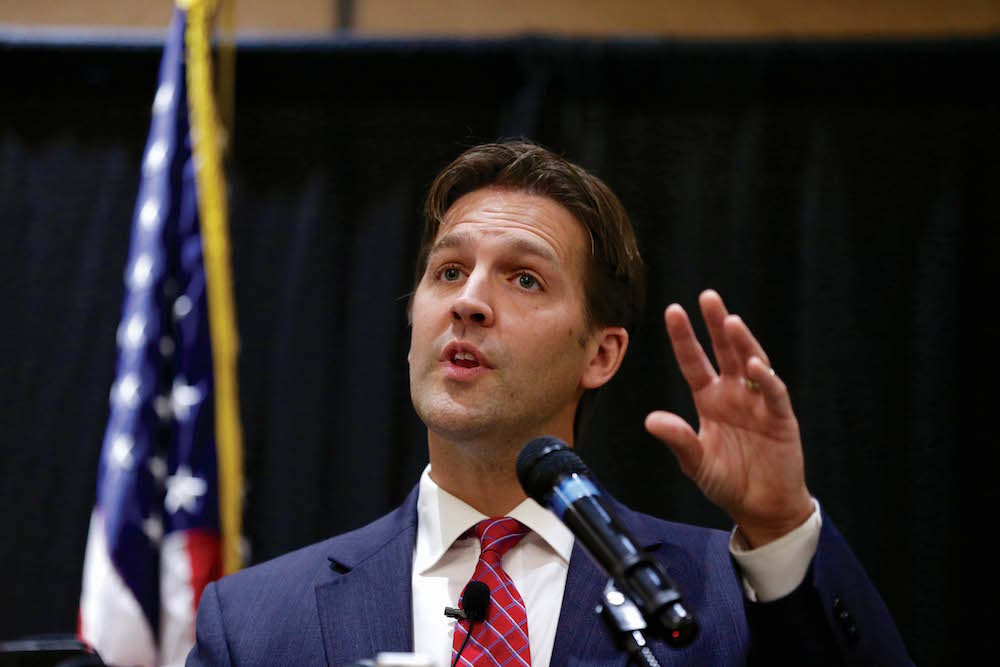
Sasse has been discussed since he became the first member of Congress to publicly pledge not to support Trump as his own party’s nominee. (AP Photo)
But as a candidate himself, Sasse would join the ranks of Cruz and Rubio: first-term senators who’ve struggled to assure voters they are experienced enough to be commander in chief.
It might be difficult for Sasse to build enough name recognition and be enough of a force in deep-red states, with the exception of Nebraska, to steal the necessary votes away from Trump and Clinton.
“This is only his second year in the Senate, but he’s an experienced person with a humble leadership style,” Maranga contended. “Plus, he really speaks to people in a way that’s non-divisive.”
Like most of the other hypothetical third-party candidates, Sasse has repeatedly said he’s not interested in running.
“Such a leader should be able to campaign 24/7 for the next six months,” the father of three wrote on Facebook. “Therefore he [or] she likely can’t be an engaged parent with little kids.”
Former Oklahoma Sen. Tom Coburn
Of the lawmakers whose names have been mentioned by anti-Trump Republicans, Coburn was one of the few who has appeared willing to entertain an independent bid.
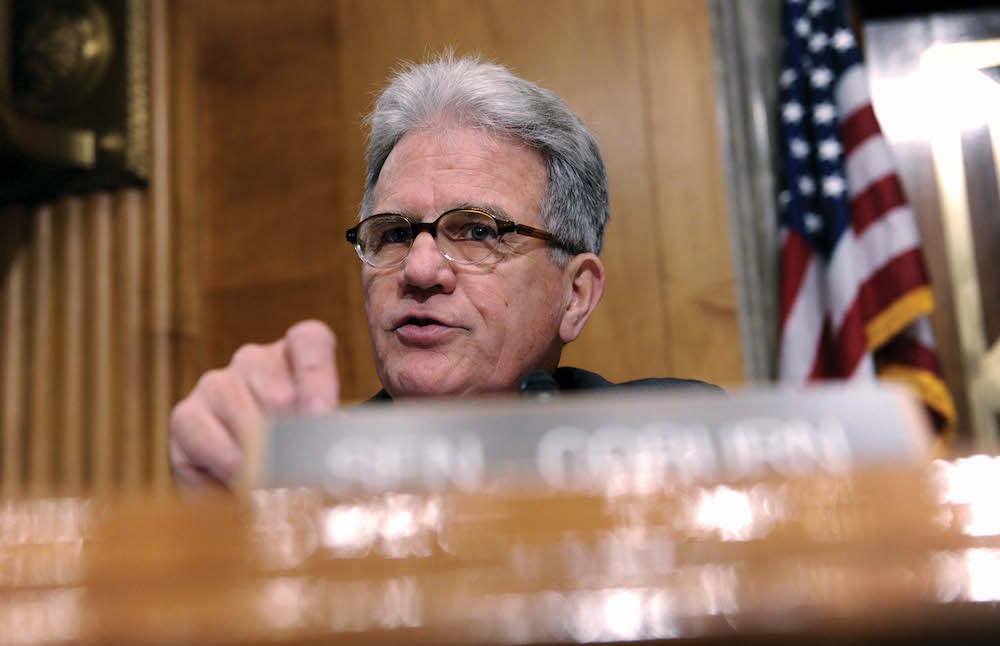
Coburn is highly respected in conservative circles because of his unwavering fight against runaway spending, and likely could get away with running on a populist message that rivals the billionaire’s. (AP Photo)
Coburn, who retired early from his second term after being diagnosed with cancer, has publicly endorsed the idea of having an independent candidate challenge Trump and Clinton.
The Oklahoma senator is highly respected in conservative circles because of his unwavering fight against runaway spending, and unlike Romney or Rubio, who would likely be attacked by Trump as establishment pawns if they entered the race, Coburn could get away with running on a populist message that rivals the billionaire’s.
Coburn returned to Washington before. He was elected to Congress as part of the “Republican revolution” in 1994, retired from the House and then was elected to the Senate in 2002.
He told reporters in March that Trump “needs to be stopped” and he plans to support whoever can do so, but doesn’t “expect that person to be” himself. But in May, he finally said in a statement, “I am not in that race and won’t be.”
